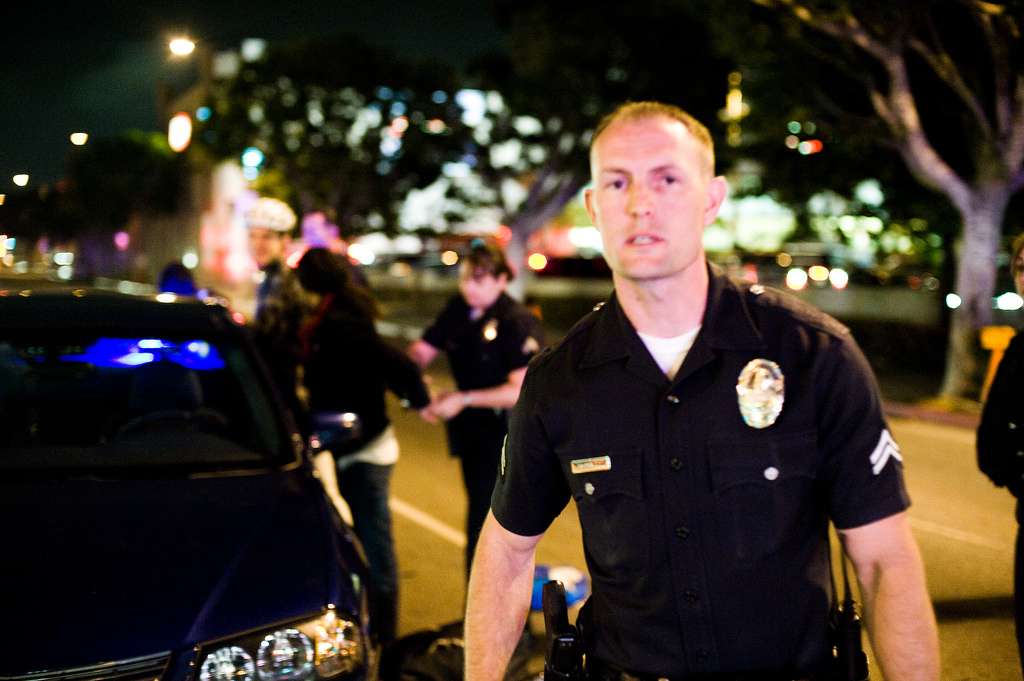Los Angeles Can't Fix Its Sidewalks but Wants to Fine Citizens for Not Keeping Them Clean


Los Angeles is catching flak for not being able to figure out how to maintain its own roads and sidewalks, despite its massive budget. Nevertheless, the city is looking at new ways to milk its citizens for even more money by trying to turn a host of minor crimes into ticketed administrative citations.
Los Angeles City Council is looking at the possibility of an "Administrative Citation Enforcement" pilot program. The city (aided by the Los Angeles Times) is presenting the program as a way to reduce the hassle for police to address low-level municipal violations. There's so much paperwork involved and it is such a hassle when people don't respond to warnings! It's being pushed as a way to avoid having to arrest people for very minor crimes, which seems admirable at first glance:
It would allow city officials to impose financial penalties for such offenses as urinating in public, having dogs off leashes at the beach or dumping garbage in public streets.
Officials said the proposal, which was approved by the City Council's budget committee Monday, is needed because warnings can be ignored and officers are often reluctant to take actions that can trigger a misdemeanor case.
Noise complaints at a child's party are also cited as an example. "We don't want to arrest Mommy and Daddy," explained one City Council member. But note the examples here are all common community nuisances where actually most (nonlibertarian) folks wouldn't object to citations. But the devil, as always, is in the details. The pilot program lists two-and-a-half pages of citable offenses, most of which have to do with pets and animals, and many of which the average resident might not be aware are even offenses. In addition to "failure to keep sidewalks clean," the offenses include "tampering with refuse" (which will likely snag the many extremely poor folks who comb through recycling bins on trash day before the trucks come), "failure to post city business permit in a fixed location of business," "café entertainment without a permit," "amplified sound—refrigeration, air or heating," "harboring unlicensed dog," and most importantly "feeding pigeons in certain areas." A police officer could probably hand out a half-dozen of these citations walking down the street where I live (especially in regards to pet licensing and stray animals). You can read the city's details about the proposed program and the rest of the list here (pdf).
The citations will start at $100 but work all the way up to $1,000 for repeat violations. There is a two-step appeals process, but heads up: If you want to take it all the way, you have to submit the value of the fine as a deposit for the privilege and pay additional fees should you lose. And while the city has the burden of proof, it only has to reach the "preponderance of the evidence" threshold against the citizen, which is a much lower requirement than "beyond a reasonable doubt."
The citations will be handled through an outside vendor who will get paid a flat fee per citation. The city expects that the new program will eventually generate $2.5 million in revenue per year. It will also create six new city employee positions.
Much like sticking police officers in schools prompted schools to start treating all forms of student behavior as criminal activity, making it a breeze for police to generate revenue for the city (and themselves) by citing people for a host of minor crimes is going to obviously result in police making citizens' lives more miserable, especially for poor people who perhaps aren't following every single pet law or business regulation because they can't afford it.
Related: Earlier in the year, Brian Doherty noted how strict enforcement of jaywalking and misdemeanor laws and the implementation of various "small fines" like these are making life miserable for the poor.


Show Comments (27)